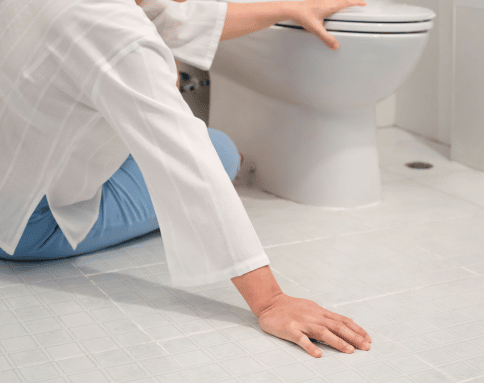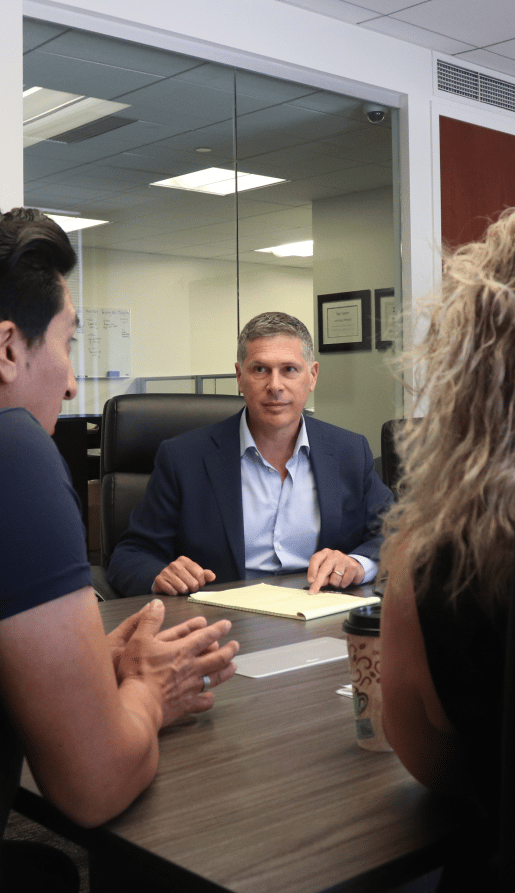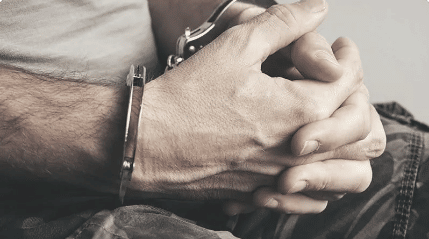New York City Slip & Fall Accidents Lawyer
Home » New York City Personal Injury Lawyer » New York City Slip & Fall Accidents Lawyer
- What should I Do After a Slip & Fall Accident?
- Common Causes of Slip and Fall Injuries
- Common Slip and Fall Injuries
- When should I call a New York slip and fall lawyer?
- How can a personal injury attorney help me with my New York slip and fall case?
- Get Advice From An Experienced Slip & Fall Accident Lawyer
- How much is my slip and fall case worth?
- How much does it cost to hire a personal injury lawyer?
- Why is Proner & Proner the best choice?
- Contact Our Experienced NYC Slip & Fall Attorneys For A Free Consultation About Your Premises Liability Case
- Contact Our Experienced NYC Slip & Fall Attorneys For A Free Consultation About Your Premises Liability Case
Slips and falls are the leading cause of hospitalization in children under 14 and in adults 65 and older, according to the New York State Department of Health. They are also the leading cause of unintentional injury death in adults 45 and older.
Proner & Proner can help slip and fall victims recover compensation for their injuries. For more than 60 years, the esteemed attorneys at Proner & Proner have been successful in helping personal injury victims recover millions of dollars in compensation from negligent individuals and businesses.
Let us do the same for you. Contact our New York City office located at 122 East 42nd Street by calling (212) 500-1003 or emailing us at info@prolaw1.com — 24 hours a day, 7 days a week.
What Should I Do After a Slip & Fall Accident?
You should get examined by a doctor even if you think your injuries were minor. The doctor’s opinion can be critical to your right to recover compensation. You should also:
- Report your injuries to a manager if you were injured while in public, such as in a grocery store or restaurant, or to the property owner.
- Fill out an accident report if the property owner has a form that the business uses for slip and fall accidents.
- Take pictures of the accident scene to clearly document the dangerous condition.
- Get the contact information of anyone who witnessed your accident.
Call Proner & Proner to discuss your right to compensation before accepting any insurance settlement or offer made by the property owner.
Common Causes of Slip and Fall Injuries
Slips and falls are almost always preventable. The necessary steps premises owners can take to prevent these injuries are often simple and inexpensive, yet the impact of a fall can be devastating, expensive and long-lasting.
Snow and Ice
According to ABC 6 Action News in Philadelphia, the CDC reports that approximately one million people are injured falling on snow and ice every year, and 17,000 are killed. Businesses and individual property owners have a duty to remove snow and ice from public areas.
The City of New York requires private property owners to clear the public sidewalk in front of their home of snow and ice within four hours of snow stopping during the day, within 14 hours if it stops during evening hours or by 11:00 am the following day if it stops during the night. Failure to do so can result in fines and liability in the event someone falls.
Defective Walking Surfaces
Premises owners have significant responsibilities to maintain walking surfaces to ensure they are safe. Even a small amount of negligence can cause a fall with life-changing consequences for the victim.
Sidewalks
The following hazardous conditions on sidewalks can cause falls:
- Cracks greater than a quarter-inch
- Potholes
- Gravel, rocks, mud
- Depressions in the concrete that can trap water and mud
- Obstructions such as trash cans and planters
- Landscaping planted too close to the sidewalk
- Tree roots that cause heaving and buckling
- Uneven walking surfaces
- Inadequate patching
- Raised or lowered edges
- Changes to the surface texture
Entrances and Exits
Entrances and exits experience extreme foot traffic and are prone to wear, dirt and moisture, all of which can produce slippery surfaces.
Indoor Flooring
Indoor flooring that is improperly installed, has frequent changes in surface types or is not level creates hazardous conditions. Carpeting with tears is also a fall hazard.
Parking Lots
Poorly maintained parking lots can result in the following slip and fall hazards:
- Potholes
- Poorly maintained speed bumps
- Poorly maintained curbs
- Cracks
- Snow plow damage
- Rocks
- Mud
- Sand
- Improperly maintained tire stops
Poor Lighting
Poorly lit areas indoors or outdoors can be hazardous, especially in areas that have other fall hazards such as uneven walking surfaces.
Unsafe Steps and Stairs
Falling down steps can be deadly. This can easily occur if steps are improperly maintained. The following conditions are hazards that should be marked and repaired right away:
- Broken steps
- Missing, broken, loose or inadequate hand railings
- Improperly built steps
- Debris or obstructions on steps
- Poorly lit stairways
- Uneven or missing steps
Related Pages
New York Office
122 E. 42nd St #2015, New York, NY 10168
Email: info@prolaw1.com
Phone: (212) 986-3030
Successful Cases
$6,900,000.00
Female, Male: Premises Liability
$3,500,000.00
Female, 43: Premises Liability
$3,500,000.00
Female, 33: Serious Personal Injury
Testimonials
Got into a motorcycle accident and went to Proner&Proner. I received great services and excellent results, I would definitively recommend the services. It was a great experience for me, A++ attorneys.
– GOOGLE REVIEWER / CLIENT
When I felt I needed legal support after a motorcycle accident, I sought out an attorney who was a motorcyclist as well. Fortunately, I found Mr. Proner. The concern I received was a comfort. The firm’s contact with me while working on my behalf was reassuring and the results certainly made a bad experience easier to put behind me. My gratitude to Proner & Proner.
– GOOGLE REVIEWER / CLIENT
Mitchell Proner is an amazing and very experienced trial lawyer, who takes care of his clients. He represented me in a car accident case, kept me very informed during the lengthy legal process and got me the settlement that I expected. His friendly office staff was always willing to assist and answer any questions I had. I recommend Mitchell Proner to all my friends and family!
– GOOGLE REVIEWER / CLIENT
I am very grateful for the services they were very quick and they dealt with my case right away. Thank you very much.
– GOOGLE REVIEWER / CLIENT
Mitchell Proner is an excellent lawyer. He took our case and did the right thing. We recommend him 100% to anyone. His staff are professionals and they care about their clients.
– GOOGLE REVIEWER / CLIENT
Greatest Lawyers I ever had. Answer any and every question I ever had. They treated me as one of the family. I can’t say enough about this firm. Thank you so much for all you guys did.
– GOOGLE REVIEWER / CLIENT
Awesome experience, excellent service, very professional and fast resolving my case. My number one attorney – definitely recommended more than once. Thank you!
– GOOGLE REVIEWER / CLIENT
What Our Clients Say
Here are some of our clients’ testimonial videos
Common Slip and Fall Injuries
According to the Centers for Advanced Orthopaedics, the following injuries can result from slips and falls:
- Broken bones and fractures
- Cuts and abrasions
- Spinal cord injuries
- Traumatic brain injury
- Concussions
- Soft tissue injuries

When should I call a New York slip and fall lawyer?
If you have become injured after falling on someone else’s property because of the owner’s negligence, you should contact an attorney as soon as possible. The New York statute of limitations for personal injuries is three years. While this may seem like sufficient time, your attorney will need time to review your medical records, investigate your fall and build your case.
How can a personal injury attorney help me with my New York slip and fall case?
Shortly after your fall, you may be contacted by the premises owner’s insurance company. In many cases, the company will offer a settlement that may sound like a large number but is actually a low-ball offer. The company may pressure you to accept the offer as soon as possible. It is important to remember that insurance companies are working hard to pay as little compensation as possible.
Insurance companies work for their own interests. A personal injury attorney works to secure your best interests. The insurance company’s early settlement offer does not take into consideration the total lifetime cost of the fall. At Proner & Proner, we consult with life care planners and medical experts to ensure the full cost of your injuries is considered before negotiating a settlement.
At Proner & Proner, we refuse to settle for any amount less than you need and deserve. We are skilled negotiators, but in the event that an insurance company refuses to offer reasonable compensation, Proner & Proner is always well-prepared to litigate your case in court. As a nationally rated top 100 trial lawyer, Mitchell Proner is unafraid to present your case to a jury if that is what it takes to secure your rightful compensation.
Get Advice From An Experienced Slip & Fall Accident Lawyer
All You Have To Do Is Call 212-986-3030 To Receive Your Free Case Evaluation.
How much is my slip and fall case worth?
The value of your personal injury case depends on factors that are specific to your case. These factors include the following:
- The severity of your injuries
- The total financial losses you have incurred
- Your medical bills
- Your expected future medical bills
- Lost wages
- Your future ability to work
- The amount of pain and suffering your fall has caused
- The attorney you choose
Compensation after a fall can include any combination of the following:
- Medical bills
- Lost wages
- The cost of services you can no longer perform yourself
- Pain and suffering
- Humiliation
- Loss of society
- Emotional distress
- Loss of enjoyment of life

How much does it cost to hire a personal injury lawyer?
Proner & Proner does not charge clients legal fees unless and until we recover compensation for you.
Why is Proner & Proner the best choice?
Proner & Proner offers aggressive, skilled representation with compassion and empathy. Having suffered serious injuries himself in a 1990 motorcycle accident, Mitchell Proner understands the devastation injury victims experience. As the managing partner of the firm his father started over 60 years ago, Mitchell Proner has earned the admiration and respect of his clients and peers.
His prestigious professional honors include the following:
- Regular guest appearances as a legal analyst on multiple television networks nationally and internationally, including CNN, local affiliates and international news networks
- Lifetime member of the Multi-Million Dollar Advocates Forum
- The highest possible peer review rating of “AV” for ethics and skill in advocacy by Martindale-Hubbell
- Elected president of the New York State Academy of Trial Lawyers
- Lecturer and faculty member of the New York State Trial Lawyers Institute
Contact Our NYC Slip & Fall Attorneys For A Free Consultation
The slip and fall lawyers of Proner & Proner in New York City have an outstanding record of legal success handling premises liability cases throughout the United States, including New York and Connecticut.
If you or a loved one has sustained an injury on someone else’s property, our aggressive NYC personal injury lawyers can help. Contact the law firm of Proner & Proner to speak with a member of our legal team to schedule a free case review today.
Frequently Asked Questions About NYC Slip & Fall Accident Cases
Possibly. Property owners are allowed a reasonable amount of time to make their property safe from hazardous conditions. Whether you have a valid slip and fall accident claim would depend upon whether the property owner reasonably should have had time to salt the sidewalk or otherwise warn of the condition. It will also depend upon whether a reasonable person could have or should have avoided the ice to prevent the accident.
In The Press



Office Location
Even though the firm has successfully represented clients from five continents and over 30 jurisdictions, Proner & Proner serves New York personal injury clients in all five boroughs from our office in Midtown Manhattan.

